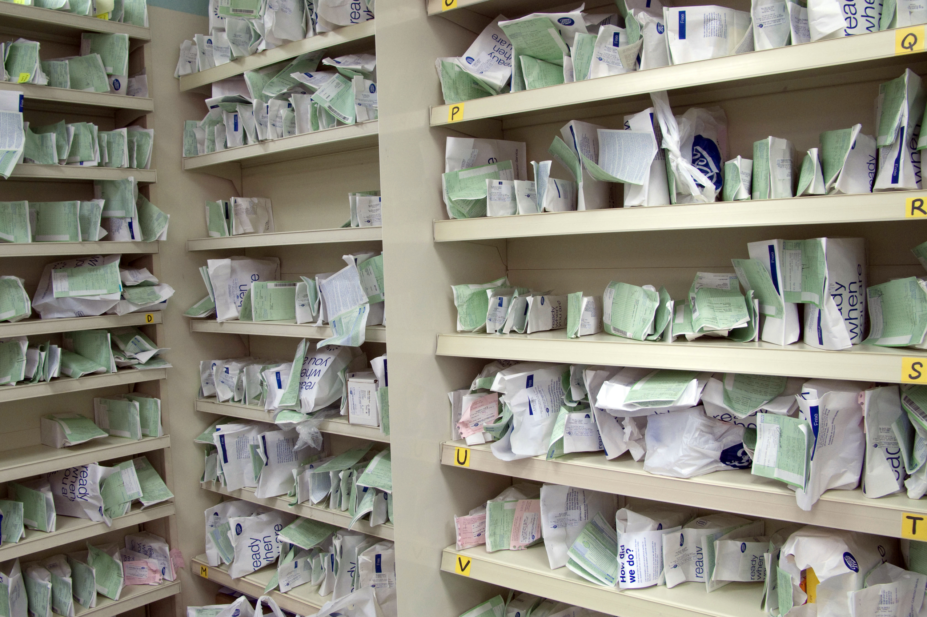
David Pearson / Alamy Stock Photo
Pharmacists have been asked to “remain vigilant” when dispensing certain packs of medicines after a discrepancy was found between barcodes on the packs and corresponding data stored in an NHS Business Services Authority (BSA) database.
The ‘Dictionary of medicines and devices (dm+d)’ database is a record of descriptions and codes that link to medicines and medical devices in use across the NHS.
The Pharmaceutical Services Negotiating Committee (PSNC) said the discrepancy, in which different medicines or different strengths or forms of the same medicine appear to share the same barcode, could result in patients being given the wrong drugs.
Manufacturers have blamed the information stored on the dm+d database for the problems.
A list of the affected drugs has been published by the PSNC, which shows that 62 global trade item number (GTIN) barcodes link to at least two different medicine packs, with a total of 128 packs from 25 manufacturers affected by the discrepancy.
In most cases, one barcode links to different strengths of the same medicine. However, eight barcodes have been found to link to two different medicines, including olanzapine 2.5mg tablets and oxybutynin 2.5mg tablets, which share the same barcode.
On 27 September 2019, the PSNC warned in an online statement that some of the discrepancies “may pose a risk to patient safety”.
While the PSNC was unable to confirm whether the affected drugs are still in the supply chain, it asked that “pending further updates, pharmacy teams remain vigilant when dispensing”.
“Steps should be taken to ensure that any discrepancies will not lead to patient harm through inadvertent product selection during the dispensing process,” the statement said.
“Prescriptions for the affected lines should be checked stringently (particularly when using automated dispensing systems) to ensure the correct drug, dose and form are dispensed.”
Ravi Limaye, managing director of generic pharmaceutical company Wockardt — which saw six strengths of pregabalin capsules impacted by the discrepancy — told The Pharmaceutical Journal there was “no error” with its barcodes.
However, he said there was a change made to the codes in 2016, “which has not been captured appropriately within dm+d database”.
“We are in discussions with dm+d to update their database with the correct codes,” he said.
Mark King, director of quality operations at Accord Healthcare, said the manufacturer was contacted by the Defective Medicines Report Centre at the Medicines and Healthcare products Regulatory Agency (MHRA) about the issue on 17 September 2019.
“No GTIN was reused by Accord; the issue appears to be with the data in the spreadsheet — potentially its source of origin and the way it was maintained,” he said.
“The information that we provided on our packs was correct and we have been in regular contact with the NHS prescription Services and NHS primary care services team to ensure the validity of that information.”
He added that Accord has provided the MHRA “with complete details relating to the batches in question” and appreciates “the critical nature of GTIN codes, and these are not recycled”.
A spokesperson for Teva also said that its “control systems are specifically designed so that no one barcode relates to more than one medicine,” and added that it is working with the MHRA “to help with the resolution”.
NHSX, the government body overseeing the digital transformation of health and social care, said in a statement that it was made aware of the issue by an acute trust, with action now being taken to remove the duplicate codes from the national dataset.
A spokesperson for the body said: “NHSX is working with partner organisations including MHRA and NHS BSA on this issue, and frontline staff have been alerted to the situation so they can take steps to eliminate any risk to patients”.


